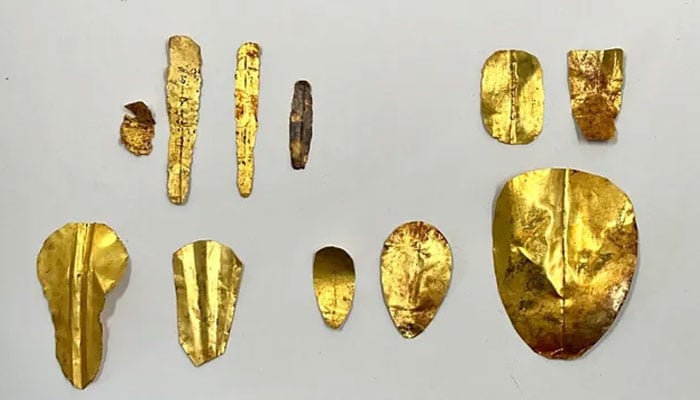Ancient mummies with gold tongues discovered in Egypt
Human remains date to Ptolemaic period, says Egyptian Ministry of Tourism and Antiquities

The discovery of 13 ancient mummies with gold tongues and nails in a cemetery at the site of Oxyrhynchus has been done by the archeologists in Egypt.
When the team dug down to the bottom of a burial shaft, they made the finds revealing a hall with three chambers that held dozens of mummies.
According to two statements released by the Egyptian Ministry of Tourism and Antiquities, the human remains date to the Ptolemaic period, (circa 304 to 30BC), a time when a dynasty descended from one of Alexander the Great’s generals ruled Egypt.
It is worth noting that archaeologists had previously unearthed 16 gold tongues at Oxyrhynchus.
Interestingly, the ancient Egyptians put gold tongues in mummies with the intention of helping the deceased speak in the afterlife, and because they believed that gold was “the flesh of the gods,” Esther Pons Mellado and Maite Mascort, co-directors of the Spanish-Egyptian archaeological mission at Oxyrhynchus, told Live Science earlier this year.
The new findings were made by the same team.
An Egyptology professor at the American University in Cairo Salima Ikram also told Live Science: “The number of gold tongues here is high, which is interesting.”
“Possibly the bodies belong to higher elites that were associated with the temple and animal cults that proliferated in the area,” she added.
Furthermore, she highlighted that it’s possible that gold tongues “might have been the vogue for the embalming house in the area.”






